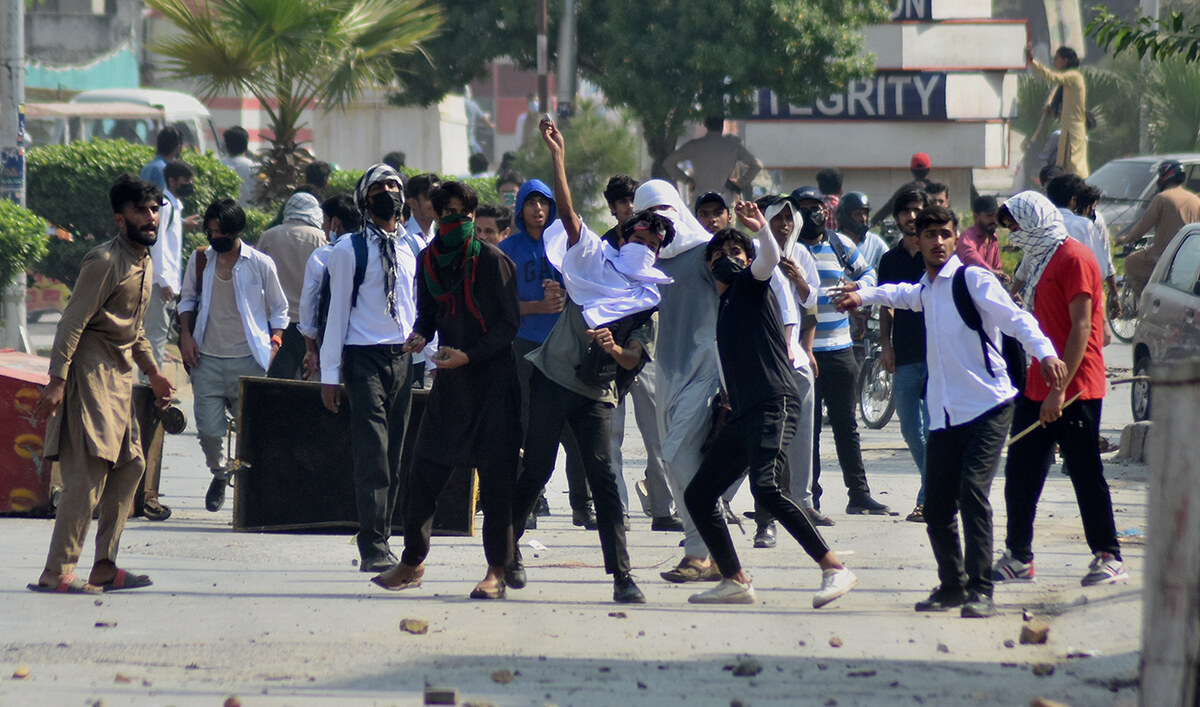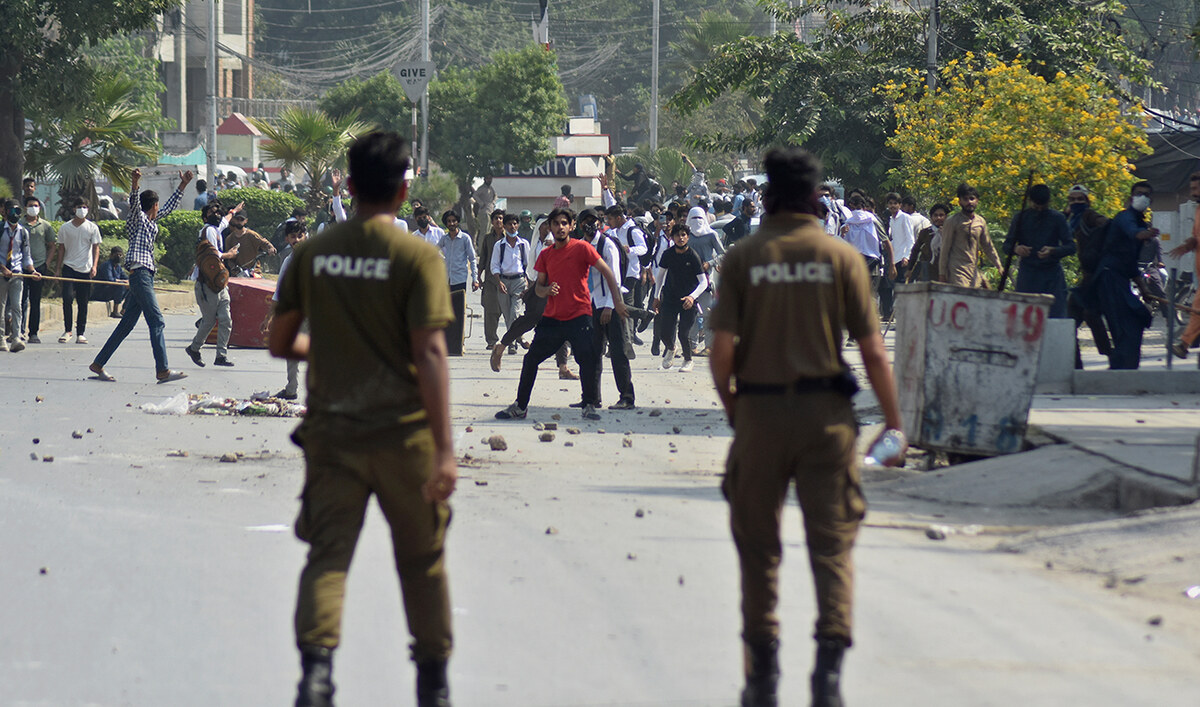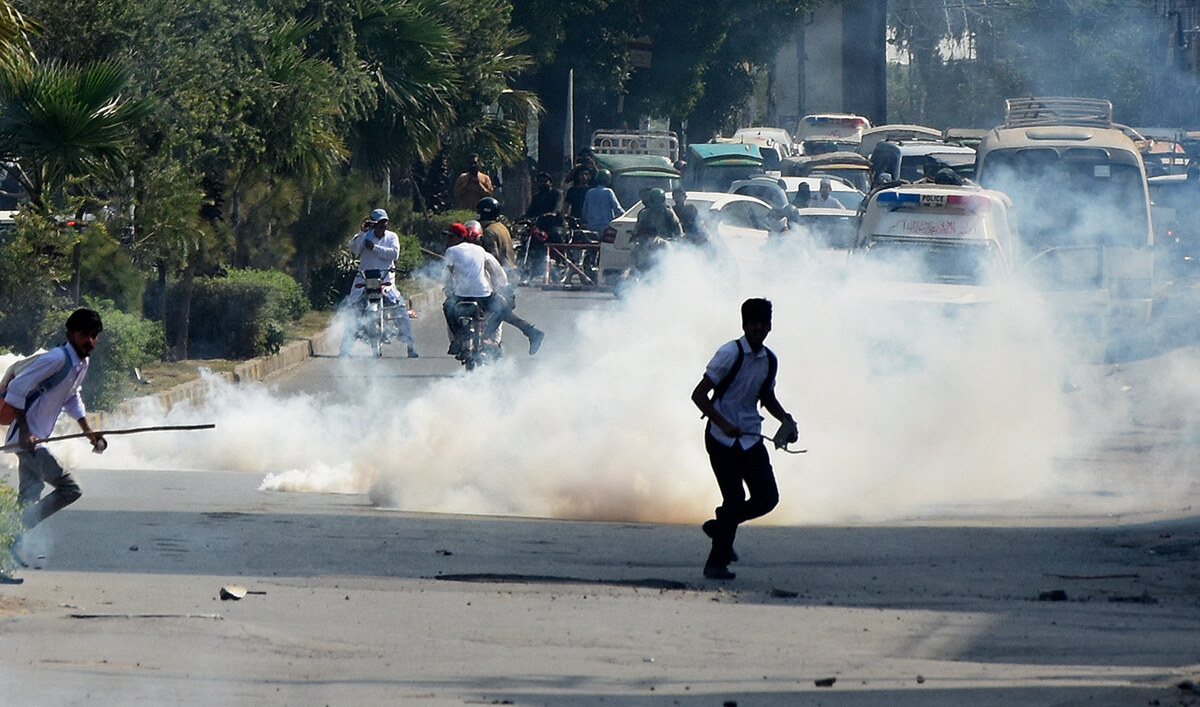ISLAMABAD: Indian journalists accompanying External Affairs Minister Subrahmanyam Jaishankar to Pakistan this week described his visit to Pakistan as a “positive” sign for bilateral ties between the two states, but expressed little hope the move would trigger a major thaw in strained relations between them.
Around a dozen Indian journalists accompanied Jaishankar to Islamabad when he arrived in the capital on Tuesday to attend the two-day Shanghai Cooperation Organization’s (SCO) Council of Heads of Government summit. This marked the first visit by a top Indian diplomat to Pakistan in nearly 10 years.
Nuclear-armed India and Pakistan are bitter adversaries with longstanding political tensions, having fought several wars and numerous skirmishes since the partition of British India in 1947. Cross-border militancy and territorial dispute over the Himalayan Kashmir region ruled in parts by both countries have fueled their conflicts over the years.
Jaishankar shook hands with Pakistan’s Prime Minister Shehbaz Sharif during the visit, exchanged greetings and sat with Deputy Prime Minister Ishaq Dar during a luncheon for SCO delegates. Hours after the two-day regional gathering concluded, Jaishankar thanked the Pakistani leaders and government for their “hospitality and courtesies.”
“The fact that he [Jaishankar] did choose to come, that the prime minister [Narendra Modi] did ask the foreign minister to attend this summit meeting, that is a positive signal and a construct,” Smita Sharma, an Indian freelance journalist, told Arab News on Wednesday.
She noted that the SCO Charter does not permit member states to highlight bilateral issues, describing it as a “blessing in disguise.”
“This adds to the pressure on both New Delhi and Islamabad to not really bring their differences to the table and derail this platform as well,” Sharma noted. “But whether they utilize this opportunity to pave the way for a larger bilateral construct, I have very little hopes of it.”
Sharma blamed India and Pakistan’s “inflexible issues” and difficult, principled positions on “terrorism” and the Kashmir disputed for longstanding tensions.
“I do not see a peace dividend or a peace appetite at the moment as far as the political leaderships are concerned,” she said.
Ashish Kumar Singh, the national bureau head at ABP News in New Delhi, called for greater access between the two countries. This he said could be achieved by easing visa restrictions to enhance people-to-people exchanges and journalists.
“As far as people-to-people exchanges are concerned, before 2014 there were more exchanges between India and Pakistan,” Singh pointed out. “But then the relationship was made hostage primarily due to India’s concerns on terrorism.”
During his address at the summit, Jaishankar spoke of three major issues facing the region, “terrorism, separatism and extremism.” He said the multi-nation platform sought greater regional cooperation but also noted that lack of good neighborliness and trust was impeding cooperation within the SCO.
’POSITIVE’ BODY LANGUAGE
Singh said he observed that the body language of both Pakistani leaders and Jaishankar at the summit was “positive.”
“The kind of body language that I have just noted, and in diplomacy, body language matters,” Singh said. “When an external official is there, to see him for two consecutive days sharing good smiles with the prime minister of Pakistan is positive,” he said.
Pakistan’s current premier Sharif is the younger brother of former three-time prime minister Nawaz Sharif, who during his previous tenure in office tried to improve Pakistan’s relations with India. Nawaz Sharif faced criticism from his political opponents for warming up to Pakistan’s traditional rival.
Singh noted that whenever the Sharif family comes into power in Pakistan, both countries take steps in a positive direction for India-Pakistan relations.
“The kind of body language we are seeing here during the SCO summit, it gives a way of hope and maybe in days to come, both sides may sit and find some way of increasing the people-to-people contact,” he said.
Talking to the media, Pakistan’s information minister Attaullah Tarar described Jaishankar’s visit as an “ice breaker.” He said that by hosting the SCO summit, Pakistan had enhanced its capacity at the regional level.
“We have chaired this session of the SCO summit and for regional connectivity, for climate change, for counterterrorism, we can play our role and the world accepts that we have a key role to play as a major player,” Tarar told Arab News.




















